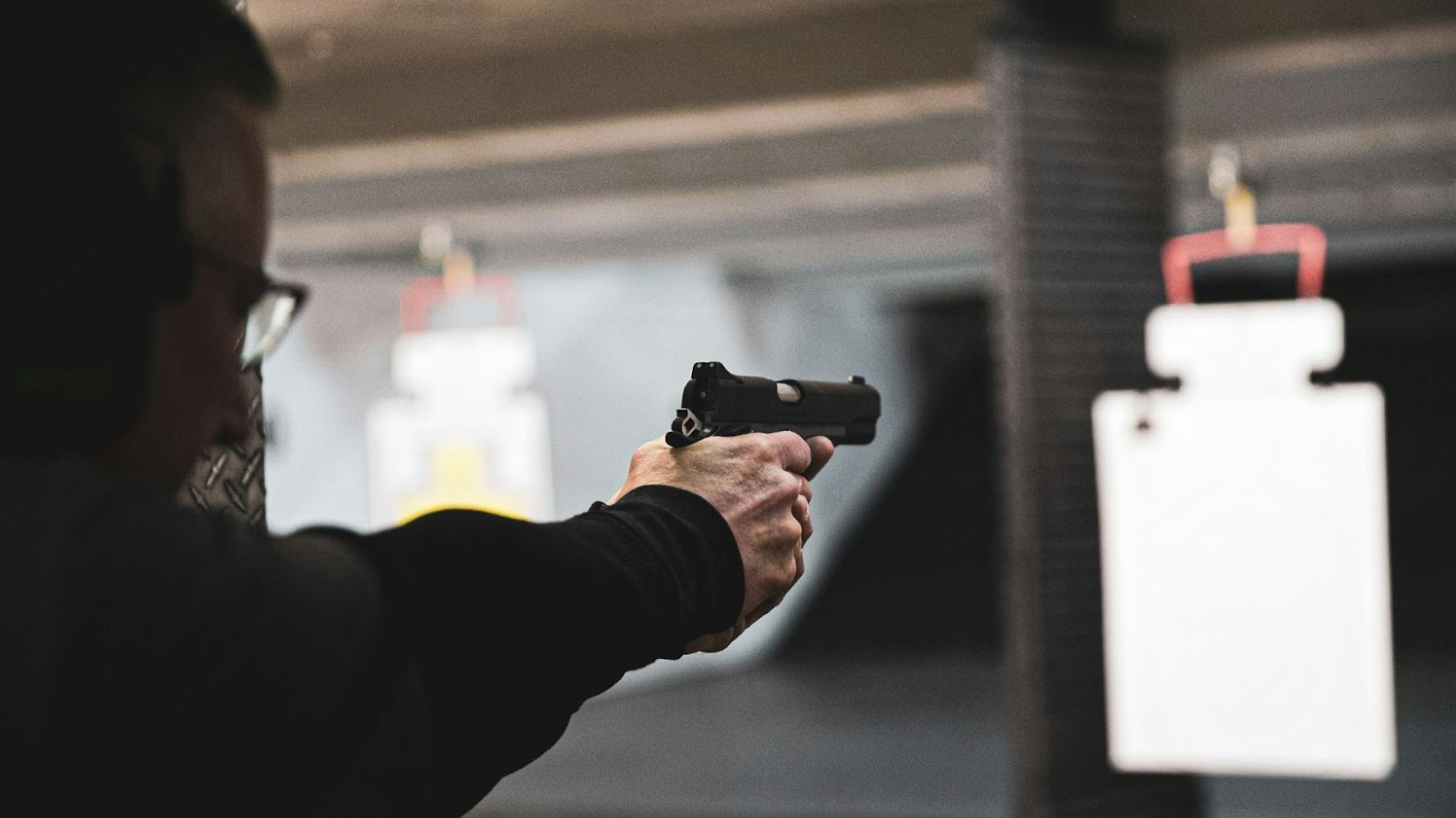Oregon Gun Law Ruling Deemed “Unconstitutional” is Turning “Legal Standards on Their Head”
A Harney County Judge from the state of Oregon has issued a permanent injunction against the highly controversial Measure 114. This measure aims to implement a limitation on the capacity of ammunition magazines, among other stronger gun laws.
For the past several years, the decision has been at the center of a heated debate, with a significant portion of the state’s population contesting its constitutionality, making it a topic of significant interest and engagement.
Measure 114
In November 2022, Oregon voters narrowly passed Measure 114, which aimed to strengthen several gun laws in the state.

Source: Freepik
Around 50.7% of the region voted in favor of the measure, which requires residents to acquire a permit should they wish to purchase a weapon. It also prohibits the sale of ammunition magazines that hold ten or more rounds in many circumstances.
Law Struggles to Pass
Despite Measure 114 narrowly passing in 2022, it has yet to go into effect due to public outcry, which has brought with it several state and federal challenges.

Source: Freepik
Prominent Harney County Judge Robert Raschio has voiced concern about the law and successfully prevented it from passing after suggesting that certain aspects of the measure are unconstitutional.
The Right “to Bear Arms”
The state has argued that Article I, Section 27 of the Oregon Constitution says that citizens have a right to “bear arms,” but this is only for self-defense. This law does not give Oregon citizens the absolute right to bear arms.

Source: cottonbro studio/Pexels
However, the judge believed that this regulation infringed on the constitutional right to bear arms.
Opposing Measure 114
The NRA-ILA calls Measure 114 the nation’s most extreme gun control initiative, citing that it would ban ammo magazines with more than 10 rounds, require government permission to exercise your right to “bear arms,” and allow personal information to be added to a government registry.

Source: Bermix Studio/Unsplash
“Under the guise of the ‘Reduction of Gun Violence Act,’ Ballot Measure 114 is an unconstitutional, anti-gun initiative package that includes a state-run government registry of gun owners’ personal information and firearms, requires a permit to purchase a firearm, imposes an indefinite delay on background checks, and bans any magazine with over a 10-round capacity,” the NRA writes.
The Threat of the Appeal
Lawyers for the state argue that Judge Raschio turned “legal standards on their head” and should have found the measure’s regulations constitutional as written under the existing law.

Source: Freepik
The trial court “weighed the policy merits of the measure for itself and, at the same time, refused to consider published studies and reports on the public safety benefits of each of the law’s three components,” the state’s opening brief said (via Oregon Live).
A Legal Error
Nadia H. Dahab, an attorney for the state’s appeal, said that Raschio used the wrong legal analysis by focusing on a speculative inquiry about whether the law could ever be applied unconstitutionally.

Source: Library of Congress/GetArchive
“Rather than determine whether Measure 114 ‘is capable of constitutional application in any circumstance,’ the trial court instead searched for any possible circumstance in which the measure might be unconstitutionally applied or construed. This was a legal error that requires reversal,” Dahab wrote.
Oregonians Have a Right to Self Defence, Says Judge
Voters from Harney Count expressed opposition to the bill, with as many as 85% voting against its implementation. Judge Raschio then issued an emergency injection, which delayed Measure 114 from going into effect.

Source: Cody Wingfield/Unsplash
“Oregon citizens have a right to self-defense against an imminent threat of harm, which is unduly burdened by Ballot Measure 114,” Raschio wrote.
Judge Raschio Unhappy With Stipulations of Proposed Measure
According to Judge Raschio, one major problem with the proposed measure is that residents of Oregon could have to wait at least 30 days to purchase a firearm.

Source: Freepik
The proposed permit-to-purchase program “mimics the concealed handgun license scheme, reducing the right to bear arms to an unduly burdensome administrative due process right,” said Raschio.
FBI Background Checks Would Stall Weapon Permits
Raschio continued by suggesting that a lack of FBI background checks would only further stall the permit process, thereby placing a further burden on Oregonians’ right to bear arms.

Source: Freepik
“The parties have stipulated that the Federal Bureau of Investigations will not conduct background checks on applicants who apply for a permit-to-purchase a firearm,” Raschio wrote. “The defendants invite the court to assume that the permits will be issued anyhow. The defendants provide no evidence on why that assumption would be true.”
Large Magazines Protected Under Constitution
In reference to the state’s attempt to ban large ammunition magazines, Judge Raschio argued that they are protected under Article 1, Section 27 of Oregon’s Constitution, and therefore, any attempt to remove them would be in violation of the Constitution.

Source: Freepik
“There is no historical basis for limiting the size and capacity of firearms, including their magazines,” Raschio wrote. He later added that “firearm technology at the founding of the state is the foundation for the current firearm technology.”
Court of Appeals Refuses States Motion
In April, the Oregon Court of Appeals refused to entertain the state’s motion to place a hold on Judge Raschios’s ruling.

Source: Wikimedia
The state of Oregon later appealed the ruling in February, arguing that Measure 114 was set into place to save lives. “The Harney County judge’s ruling is wrong,” said state Attorney General Ellen Rosenblum. “Worse, it needlessly puts Oregonians’ lives at risk. The state will file an appeal, and we believe we will prevail.”
State Appeals the Ruling
According to Rosenblum, “Research indicates that mass shootings and gun violence have decreased in other states after adopting permit requirements and magazine restrictions.

Source: Freepik
She continued, “We are making a very reasonable request: Let Measure 114 take effect now so Oregonians’ lives can be saved—now!”
Raschio Dismisses the Claims of Bill’s Proponents
Raschio later tried to dismiss these claims put forth by the proponents of the new measure, writing, “The advocates for Ballot Measure 114 argue in the preamble and in the voters’ guide that a restraint on the amount of ammunition as the key to preventing mass shootings.”

Source: Wikimedia
He continued, “Nothing in the preamble, the voters’ guide, nor the defendants’ evidence provide a rationale for why the rounds should be limited to ten as opposed to any other arbitrary numbers that could have been picked, nor did they show the limitation of ten rounds has any demonstratable effect on negative outcomes to mass shooting events.”
Huge Win For Gun Owners
Plaintiffs in the Harney County suit include Joseph Arnold, Cliff Asmussen, Gun Owners of America, Inc., and the Gun Owners Foundation, all of whom have all stood firm beside Raschio over the past two years.

Source: seeetz/Unsplash
Following the decision of the Oregon Court of Appeals, the Gun Owners Foundation took to X to celebrate the win, writing, “a huge win in strong anti-gun territory.”
Raschio and Oregon Gun Owners Win For Now
Thanks to the work of Judge Raschio and his associates, Measure 114 will not be in effect for now.

Source: Getty Images
While the proposed guns laws remain highly controversial, Oregonians will have to wait a little longer until the court makes its final decision on whether to pass Measure 114.
Uptick in Gun Violence
Despite the uptick in gun violence in the US, many states do not have gun laws that help to reduce the threat of public shootings.

Source: Kat Wilcox
In the aftermath of former President Donald Trump being shot at a rally in Pennsylvania, President Joe Biden addressed the US, saying, “We cannot–must not–go down this road in America. Violence has never been the answer.” But what are lawmakers doing to put a stop to this?
The Conversation About Gun Laws Has Gone Cold
Compared to the attempted assassination of President Ronald Reagan in 1981, a moment that sparked a national movement to confront gun violence, lawmakers are dragging their feet in talking about gun laws in the country.

Source: Wikimedia
Many Democratic lawmakers and gun safety activists, who are normally quick to respond to gun violence, have stayed relatively quick after the attack.
Taking a Back Seat
“It’s deeply concerning that our leaders aren’t responding to this horrific act of political violence with urgent calls for prevention,” said T. Christian Heyne, the vice president for policy at the Brady: United Against Gun Violence organization, to The New York Times.

Source: Wikimedia
He added: “This assassination attempt was enabled by easy access to a military-style rifle, used precisely as it was designed. Today’s muted response reflects a dangerous normalization of political violence and gun threats.”
Those Supporting for New Gun Laws
Some Democratic lawmakers are stepping up to encourage stricter gun laws across the US, advocating that these laws could protect everyone from everyday people to high-profile politicians like Trump.

Source: Anna Moneymaker/Getty Images
“Our nation simply does not have to hand assassins and mass murders the weapons that make the slaughter possible,” Senator Chris Murphy, Democrat of Connecticut and the lead voice on gun safety issues in Congress, wrote on social media. “You don’t have a plan to end mass shootings or political violence if your platform seeks to make it easier for killers to get high powered military weapons.”
States’ Gun Laws Vary
Gun legislation is one of the more complex and controversial issues that the US has attempted to tackle for years. In each state, the gun laws vary wildly, with some states that share a board have laws that butt heads against each other.

Source: seeetz/Unsplash
Although nine states have banned assault rifles like the one used to shoot Trump, people still widely use them in the US, and mass shooters frequently choose them.
Oregon and Its Prevention Efforts
The Giffords Law Center tracks the correlation between gun laws and gun violence across the US and gives states a grade on their prevention efforts.

Source: Nicolas Raymond/Flickr
While Oregon appealed Measure 114, the Giffords Law Center gave the state an A- as the state has invested nearly $14 million in community violence intervention to help prevent gun violence. The state also raised the age to purchase firearms to 21 years old.
Oregon’s Current Gun Laws
Currently, Oregon is an open-carry state that allows citizens to openly carry a firearm without a permit. However, certain cities, like Portland and Beaverton, do prohibit the open carry of a loaded firearm.

Source: LOGAN WEAVER | @LGNWVR/Unsplash
The state is generally seen as generous with firearms, but it is taking steps to limit the rising gun violence in the country.
Oregon’s Gun Laws Lean Moderate
Compared to other states, Oregon’s gun laws are considered relatively moderate. The laws that are currently in place strike a balance between regulation and the constitutional right to bear arms.

Source: Karolina Kaboompics/Pexels
While there are some regulatory measures to enhance safety and prevent misuse of firearms, the state’s middle-ground approach respects and facilitates the rights of individuals to purchase, own, and carry guns.
A Quick Overview
Oregon’s gun laws around the purchase and possession of a gun are relatively straightforward when compared to other left-leaning states like California. Permits and waiting periods are not necessary to purchase a firearm.

Source: cottonbro studio/Pexels
Background checks are necessary for 18 year olds who are purchasing a long gun like a rifle and for anyone 21 or older purchasing a handgun.
Laws to Keep Residents Safe
Despite the age restrictions, there is no requirement by the state to register firearms nor is a license to own necessary.

Source: natik_1123/Pixabay
There are safe storage laws in place to protect minors and unauthorized persons from handling the weapon.
Background Checks are Mandatory
Background checks are mandated for all firearms sales. Whether a resident of the state is purchasing a gun through private sales, licensed dealers, or through a transfer, the Oregon State Police Firearms Instant Check System must run a background check.

Source: Cookie_Studio, Freepik
The fees individuals pay to conduct the background check fund the program, which aims to keep Oregon residents as safe as possible while allowing them to exercise their freedoms.
Laws to Protect Those at Risk
In Oregon, the Red Flag Law, or Extreme Risk Protection Order (ERPO), allows certain individuals to petition the court to temporarily remove a firearm from someone believed to be dangerous to themselves or others.

Source: Scott Rodgerson/Unsplash
Petitioners can file a request with the court for an ERPO, which will lead to a hearing within 24 hours about the subject of the petition.
Follow the Criteria
There are criteria for the Red Flag Law. The petitioner must provide evidence that the person who owns the firearm poses a significant danger to themselves or others by having access to the fair.

Source: Zachary Caraway/Pexels
The evidence can include recent threats or acts of violence toward the petitioner, themselves, or others. Patterns of behavior or conduct that shows there is general cause for concern are acceptable as well.
No Ban on Assault Weapons
Oregon’s moderate approach to gun laws also expands to assault weapons. While there is no magazine capacity limit anymore, the state also does not have a ban on assault weapons, which include semi-automatic firearms originally designed for military use.

Source: Specna Arms/Pexels
These weapons are uniquely lethal, but that state treats them as if they are any other gun.
No Restrictions for Oregon Residents
The law does not restrict the purchase, sale, or possession of firearms that other jurisdictions may classify as assault weapons, nor does it ban features commonly associated with assault weapons.

Source: Kelly/Pexels
This allows residents of the state to own and use a wide range of semi-automatic rifles, shotguns, and pistols.
Violence Continues to Rise in the US
While gun violence in America continues to rise, reaching over 600 mass shootings in 2023 according to the BBC, Oregon has a shocking number of mass shootings, sitting at two for the entirety of last year (via Axios).

Source: Pixabay/Pexels
This number is down by 4, showcasing that the gun restrictions in Oregon are serving their community better than most places in the US.
Guns Are a Problem in the US
According to data from the US Centers for Disease Control and Prevention (CDC), 48,830 people lost their lives from gun-related injuries in the US in 2021. That is a nearly 8 percent increase from 2020, which was a record-breaking year for firearm deaths.

Source: Freepik
While the media focuses heavily on mass shootings and other gun-related deaths, more than half of these deaths are self-inflicted.
How Many People Own Guns in the US?
A study published by the Annals of Internal Medicine, found that 7.5 million US adults became new gun owners between 2019 and 2021.

Source: Freepik
The BBC calculated that among 100 residents there are 120.5 firearms based on the 390 million guns in circulation in the US as of 2018.
Future Gun Laws
While a majority of Americans are in favor of gun control, there are some who are advocating for moderate laws that do not restrict constitutional freedoms while still protecting residents of the country.

Source: Wikimedia
Despite the recent buckling of heads in Oregon’s courts, their gun laws are not too lenient or strict, making them a state to look at for future gun laws.
A Complex Subject
When it comes to you and gun laws, knowing what your state requires for you and other gun owners and understanding gun safety is the best way to keep yourself.

Source: Freepik
However, gun laws are an extremely complicated and controversial subject that will likely change frequently as people push for what seem to be extreme measures to limit the number of gun owners in the US.
